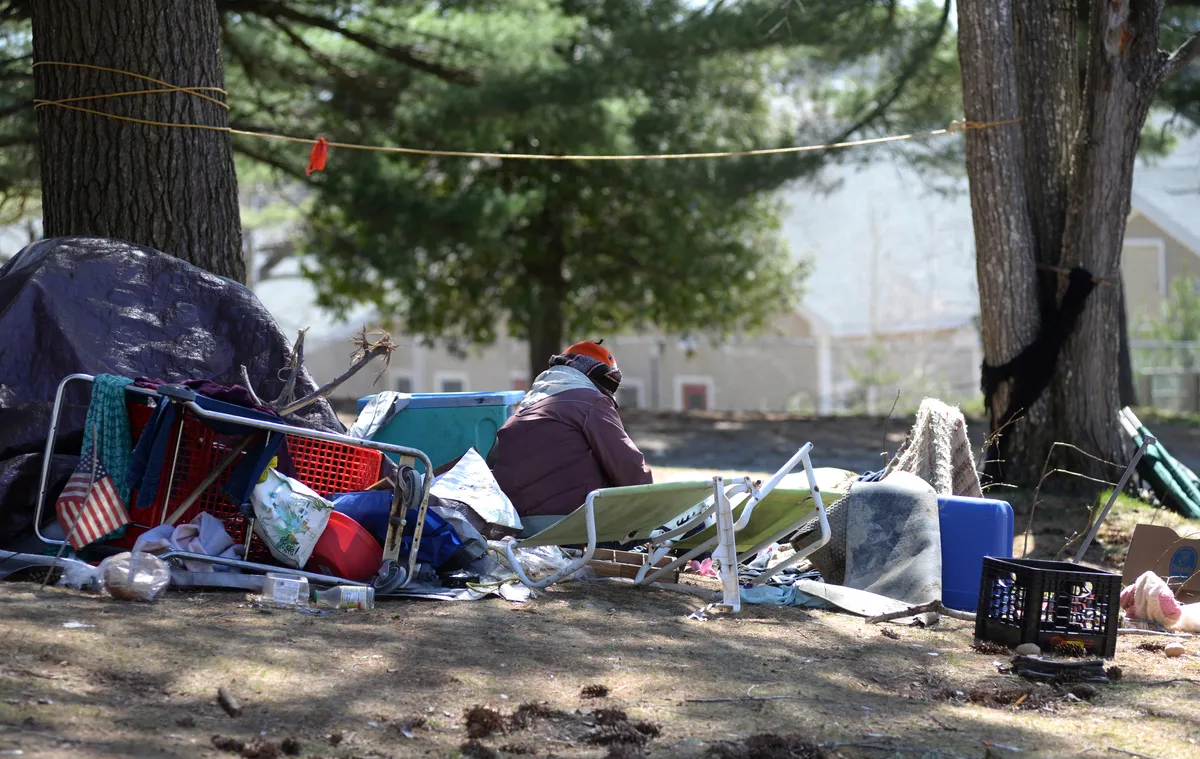Copyright Bangor Daily News

Substantial cuts planned for federal permanent supportive housing money could put hundreds of Mainers at risk of homelessness. Planned restrictions to housing funding through the U.S. Department of Housing and Urban Development, first reported by Politico last month, would allow no more than 30% of funding for statewide Continuums of Care to be used for permanent supportive housing. Hundreds of Mainers could be displaced from their housing, according to Maine Continuum of Care Executive Director Dean Klein. His organization coordinates the funding applications for Maine agencies seeking federal housing funds to combat homelessness. There are “many people who will die” as a result of the cuts and lack of available beds at shelters, he said. The funding uncertainty comes amid a housing crisis in Maine and as homelessness service providers face mounting challenges. Many shelters in the state are consistently full and already struggling to get the funding they need. Permanent supportive housing is a model that combines housing assistance with supportive services to help people leave homelessness and stay housed. Funding for this type of housing serves the most vulnerable, Klein said, including people who are disabled and older adults who have been homeless. Maine’s Continuum of Care got about $22 million from the federal government last year. More than $16 million of that money was used to fund permanent supportive housing for about 1,310 people, according to Klein. That means the 30% limit on funding for that type of housing could displace about 780 Mainers, he said. Bangor is one of 20 agencies in the state that applies for federal funding through the Continuum of Care. The city uses some of that money to supply vouchers for about 177 people to live in permanent supportive housing units, the city’s public health director, Jennifer Gunderman, said at a City Council committee meeting this month. The planned reductions could effectively make 124 Bangor residents homeless, she said. Many people would have “nowhere to go” if they lost this housing, Klein said, noting that many homeless shelters in the state are full. The older and disabled residents that benefit from permanent supportive housing would be especially vulnerable if forced to live outside, he added. The federal government is expected to communicate the policy changes when it releases a new funding application soon — but that release has likely been delayed due to the ongoing government shutdown, Klein said, which adds more uncertainty. “We are just sitting on the edge of our seat waiting for that notice of funding opportunity to be released,” Gunderman said. The U.S. Department of Housing and Urban Development has been tight-lipped about the changes, but its statements indicate the planned changes are part of a broader shift toward prioritizing government programs with restrictions like work requirements in lieu of housing-first and permanent supportive housing models. “HUD is no longer in the business of permanently funding homelessness without measuring program success at promoting recovery and self-sufficiency,” a spokesperson for the agency told Politico. The National Alliance to End Homelessness condemned the changes, saying the new funding structure “will instead incentivize communities to invest in transitional housing and treatment-first approaches. These strategies were deprioritized by the federal government decades ago because they were proven to be more costly and less effective at ending people’s homelessness.” Maine service providers also worry that the state may not receive any federal housing funding at all, thanks to recent changes to eligibility requirements. A previous federal housing grant application released in September required applicants to conform with Trump administration priorities like bans on sleeping outdoors and cooperation with federal immigration authorities. Two homeless advocacy organizations sued over these requirements, saying the Trump administration is unlawfully tying homelessness funding to his ideological agenda, and that the new requirements restrict most states from applying.



